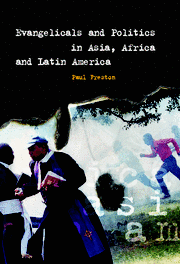Summary
Once hailed as possibly the next Asian tiger, Malaysia is also a centre of Islamic renaissance, particularly in its intellectual form. Politics is defined by a mixture of religion and ethnicity. The very slight numerical advantage of the Malays has led to Islam's use as an ethnic glue for constructing a stable national ideology for this multi-ethnic and geographically divided state. Islamic resurgence owes as much to ethnicity and nationalism as to pan-Islamic influences (Eyre 1995).
The Bahasa Malaysia language, Islam and Malay culture are the official formative principles of national culture. The Malay-Muslim identity is materially reinforced (Malays who leave Islam lose social and political privileges). Non-Malays are religiously and politically fragmented, and most non-Muslim religions are not explicitly politicised. But since the 1969 race riots, the expression of non-Malay ethnicity via political symbols has become dangerous, channelling it partly into the religious arena (Ackerman and Lee 1988:59–60).
Affirmative action for Malays glides into discrimination against non-Malays. But due to need for unity between Peninsular and East Malaysia, ethnicity and religion do not totally overlap. If Muslims are effectively a politically protected and advantaged category (prohibition of proselytisation of Muslims; linguistic limitations regarding Bibles and Christian literature; incentives to tribals to convert to Islam), there is also the politically and culturally advantaged category of bumiputeras, sons of the soil, some 10 per cent of which are tribals.
- Type
- Chapter
- Information
- Publisher: Cambridge University PressPrint publication year: 2001



